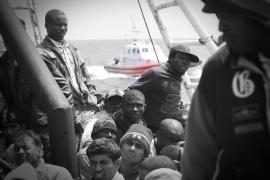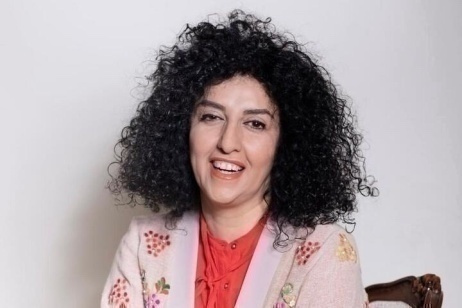
At Gariwo’s seminar, thanks to the important contributions by such philosophers as Salvatore Natoli, Sante Maletta, Francesca Nodari, writers as Francesco Cataluccio, Shady Hamadi, Hafez Haidar, and journalists as Serena Natale and Marina Gersony, members of the Jewish, Armenian and Muslim communities as Giorgio Mortara, Pietro Kuciukian and Maryan Ismail, exponents of civic and social commitment like Father Gino Rigoldi and Sergio Vicario, theatre producers and actors as Andrée Shammah and Massimiliano Speziani, we talked about the Righteous of our times and felt the need to update that definition of “Righteousness”, that has imposed itself to the public attention with the memory of the Jewish and Armenian genocide, to the topicality of the challenges of our present days.
Why this urgent question which goes beyond semantic?
The Righteous people are neither saints nor heroes, but have a peculiar character that each time in a different way has always resurfaced in history. In fact, they turn up on the public scene anytime there is a void; they act when the institutions not only prove themselves powerless, but also take a dangerous route; they show up countering the trends of the public opinion, when the latter is prone to fall prey to fear or indifference or even hate ideology and resolve to fight an enemy.
What prompts them to act and take up responsibility for the world’s fate?
There is no predestination, nor their deeds are determined by a level of morality preceding their actions. Very educated people and moral excellences in their daily lives can grossly fail in the darkest times of the humanity or even abruptly turn their eyes away from a sudden change in the customs of a society.
The genesis of their deeds does not stem from an idea of revolution, or a project of world change. On the contrary, very often they are not even aware of the extent of their actions. They are driven by a spontaneous feeling of misericordia, and a kind of an instinct of good that prompts them to perform deeds that they would hardly think they would ever do before. They suddenly find a courage and strength that they probably they had never realised to have. Until the previous day they had been completely common people, who like anyone would have put their own lives and wellbeing first and would do only what strictly needed for the others, or for common good.
Suddenly something miraculously human is sparked in them. They do not want that unjust acts are performed around them and they do not accept that a process of political, social and human destruction starts in their surroundings.
That unexpected refusal of destruction, arrogance and dehumanization of the others does not stem from an idea of future, or an ideological or philosophical dream, but simply from a relation with reality. The Righteous maybe think this way: “If the world falls into pieces, shall I perhaps do something, even a little thing?”, as wrote Marc Aurel in his Memories.
In functioning democracies it is institutions that can promote ethics and the opportunities of choice and excellent behaviour. This is the normality of a good and civil life in a mature and advanced society.
But what happens when the institutions are absent and not only leave people in the deepest state of loneliness, but start producing waves of hate and instill in human beings the most abject instincts of selfishness and fear? People who do not resign to the worst suddenly feel called to take up responsibility. They must invent a new ethics by themselves, because no one from above is able to indicate a feasible moral pathway.
Today Europe, that we have gotten to know in the aftermath of Second World War, seems to sink on all fronts. It is unable to answer the economic and social crises that are tearing Africa and the Mid-East apart; it proves indifferent towards the extermination of the Syrian people, crushed between the IS and Assad; as well a sto become a moral reference point for those who in the Arab countries raise their heads against dictatorship and fundamentalist regimes. On the contrary, the total inadequacy of the European institutions in the face of the international crises surrounding them, instead of becoming a stimulus to a process of clarification and global assumption of responsibility, is becoming an occasion to shut the doors. In the name of a purity to be kept, the key countries of Central Europe, from Austria to Poland, to Hungary, along with political movements that gain more and more consensus in France and England folllowing the electoral run of Trump in the United States, have nearly turned into an ethical value the struggle against immigration. It seems paradoxical, but if yesterday nationalism born in the continent between the two world wars viewed in Jews the enemies of the humanity, today many people in Europe view indeed in the most suffering destitutes of our world, fleeing war and the countries hit by drought and climate change, the new enemies to defend ourselves from.
Those who are asking for our help are thus becoming dangers for our existance, try to explain those who try to present themselves as the heralds of the defence of Europe from all sorts of contamination.
To them, the very idea of a federal and helping Europe becomes the heritage of the past we should free ourselves. To the more and more confused people, people Le Pen and Salvini suggest the miraculous remedy of the return to the nation states. The threat of migrants to them can be pushed back by wagon war to solidarity and the very idea of Europe, conceived by its great founding fathers. Hence the world turns upside down.
In this empty space, where all moral banisters seem to fall short, the Righteous penibly let themselves be heard. We can find them in Lampedusa and the Greek island of Lesbos between the rescuers and the people in charge of welcoming the migrants, as well as in paris, where the courage of Lassana Bathily, who rescued a dozen Jews in the supermarket, was joined by the voice of Antoine Leiris, the journalist of France Bleu who after the death of his wife, murdered in the Bataclan, invited the French population not to hate.
To all the people who on different fronts struggled for dialogue, acceptance, welcoming, and refuse fanaticism we shall give visibility and let them sort out of anonymity.
Their example is our realistic hope in these difficult times. They do not know that, but as happened in other moments in history, they can become an extraordinary incentive to emulation. We must call them strongly as the Righteous of our times.
They hold Europe’s fate in their hands.






